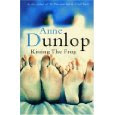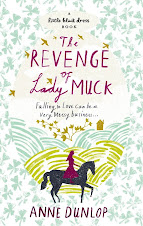
THE INFINITIES
John Banville
It is always said success breeds more enemies than friends but even I was taken aback by the acerbic reviews John Banville received in some highbrow broadsheet newspapers on the release of his novel The Infinities.
Could it really be as ‘pretentious and pompous’ as some of his critics were suggesting? Or as ‘oppressively overwrought?’ Or even ‘overinflated’?
There’s no such thing as bad publicity. I rushed out to buy The Infinities and devoured it in a couple of sittings. And in my humble opinion, this novel is a hoot. It is filthy, bawdy and rollicking. It’s even shocking if, like me, you were reared to believe that sex and toileting are private and personal activities, and not up for discussion at the dinner table.
The Infinites is narrated partly by Old Adam Godley who lies serene, detached and dying in the Sky Room at the top of his house with his family gathered beneath him. His life is passing before him; we are treated to snatches of memory; ‘so much he has forgotten because it meant nothing at the time... it is this that torments him now... the thought of all that he had and did not prize as he should have when he had it.’
Patiently waiting is Hermes, the god who in Greek mythology was appointed to be the Psychopomp, the guide who escorted the souls of the dead to their new home in the Underworld. Solemn duties aside, Hermes is a likeable rogue. While he waits for Old Adam to die he assumes the shape of Duffy a cowman to assist in the wooing of the unlovely Ivy. He stops time for an hour so randy Zeus can assume the shape of Young Adam and ravish Young Adam’s beautiful wife. And he immediately recognises bad boy Pan when he turns up on the doorstep, uninvited, having assumed the shape of a fat little man with goat like feet, and claims to be an old friend of Old Adam.
I’d go so far as to say John Banville had some fun with this novel for like the gods of Ancient Greece, he has permitted himself a god-like ability to mischievously interfere with the natural order of things. So The Infinites is set in a parallel universe, where cars run on brine, Sweden is war-like, and Elizabeth 1 was beheaded.
And as for the acerbic reviews and the accusations of pretentiousness and pomposity? Well, I did my professional best to identify an ‘oppressively overwrought’ passage, but instead I found the writing to be only gorgeous; there’s hardly a boring sentence; it’s as close to poetry as most prose writers get. I have come to the conclusion that a sharp-tongued book review says more about the reviewer than the novel.
John Banville was born in Wexford in 1945. He was educated by the Christian Brothers but did not go university. He’s quoted as saying, “A great mistake. I should have gone. I regret not taking that four years of getting drunk and falling in love. But I wanted to get away from my family. I wanted to be free.” He worked for Aer Lingus and travelled widely. He met his wife in San Francisco in 1968; she says when he’s writing he’s like “a murderer who has just come back from a particularly bloody killing.” In addition to literary fiction he also writes thrillers under the pseudonym Benjamin Black.
*
VERDICT: Barking mad. I loved it.








No comments:
Post a Comment